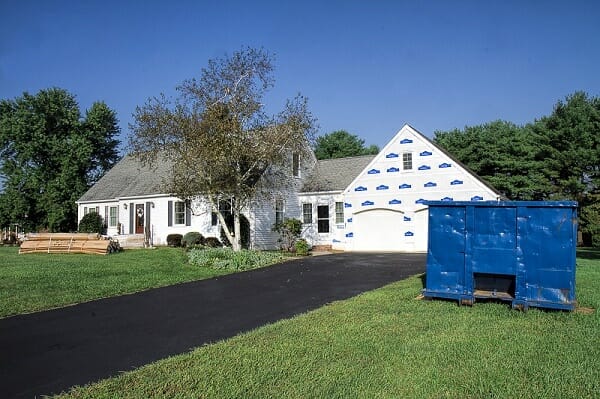- BY Evelyn
- POSTED IN Dumpster Rental
- WITH 0 COMMENTS
- PERMALINK
- STANDARD POST TYPE
Dumpster rentals are an excellent tool for a wide range of situations, but the majority of people will only need them occasionally – usually even less than once per year. However, this also means that the average person has no idea what is involved in renting a dumpster or how they have to prepare.
Our delivery range fully covers the city of Camden, New Jersey and all surrounding communities in Camden County.
Dumpster Types
There is not just a single type of dumpster that is used for all disposal work. A decent dumpster rental company like EWM Dumpster Rental has quite a wide range of different options, all meant for specific situations or kinds of work.
In practical terms, these are often very similar dumpsters – sometimes they are even the exact same model. However, what matters is the type since this dictates how the rental company actually approaches the dumpster disposal and what kind of items can be placed inside it.
For example, heavy construction debris might need a more durable dumpster design and frame. You also might not be able to put plant matter in that dumpster, since that requires different disposal methods to pieces of brick. Mixing too many different things together can even lead to a fine.
If you hire a dumpster to dispose of plant materials and dirt, then you should not use it to get rid of furniture too. If you are disposing of wood in a dumpster that is only meant for wood, then you can’t really mix in large pieces of metal. Choose a dumpster that suits your situation.

Hazardous materials cannot be put into a dumpster, regardless of context, unless the rental company has explicitly stated so. Highly flammable materials or other prohibited items are often banned by default since they can be dangerous and incredibly hard to recycle properly.
Permits
Permits are sometimes important for getting a dumpster placed in a certain area. Generally, if you are renting a dumpster and having it delivered onto your property, then no permit is needed: it is entirely within your property and does not interfere with anything else.
However, that is not always how it actually pans out. If your dumpster is not placed on your property and is on the sidewalk in front of your house, for example, then you are going to need a permit from the city or local authorities to get one delivered there.
This is because the dumpster is inherently in the way of another property, even if that property is a small part of a road that does not see much traffic. If the ideal place to deliver a dumpster is in a public space, then you should look into the necessary permits, just in case.
Do not worry too much about permits if everything is happening within your own property. Usually, if you are keeping it all isolated to your land, then you should be fine.
Weight Limits
Dumpsters have weight limits. While this may not be immediately obvious to a lot of people, a typical dumpster might only be able to hold a specific amount of weight before it becomes impossible for the rental company to pick it up.
In this situation, it is possible that they might fine you for going beyond the limit and dump some of the weight back out onto your property until their truck can load the now-lighter dumpster. Keep this in mind and try to learn what the weight limits are, especially if you have a lot to dispose of.
Weight limits can be deceptive, so think about what you are throwing away. A lot of small, heavy items that you could dispose of yourself can end up being surprisingly heavy if you pack them into a dumpster, but the limits are not usually an issue unless extreme weights are involved.
Capacity Limits
All dumpsters also have fullness limits, which means that you can’t over-fill a dumpster beyond a certain level. Stacking a large amount of lightweight but bulky items in a dumpster can create situations where it does not weigh much but is too large for the dumpster rental truck to pick up.
This can lead to a similar situation as the weight limits, where the dumpster rental company have to fine you for the extra capacity. You can avoid this by trying to break down large items or rearranging everything inside, but how you approach this depends on what you are trying to dispose of.
Remember that these limits can change depending on the dumpster size, type, and the kind of materials that you are supposed to be putting into it. Some might have more lax limits than others, but anything that interferes with the truck’s ability to collect it is a problem.
Delivery and Pickup
You do not need to be on-site to get the dumpster delivered or picked up. If you mark out a delivery spot with chalk or cones, then you can even have it delivered to a specific place while you are at work or otherwise busy. Plan ahead and make sure you mark out the right spot clearly.
Once your dumpster is delivered, you can use it until it gets picked up again – however long that might be. This makes it a great longer-term option for a project that might take a week or two and can also benefit general home clearouts that might take a couple of hours per day.
Pickup is equally easy, and you will not need to be there when the dumpster rental company collect it. The only exception is locked gates or other obstructions – if something is stopping them from collecting the dumpster, then they obviously can’t pick it up, which could result in small fines.

 610-679-8449
610-679-8449